Have you ever wondered why film cameras seem to function without any batteries? This age-old mystery has baffled photographers for years, but finally, we have the answer. In this blog post, we’ll unlock the secrets of film camera battery needs and provide useful tips. Whether you’re a budding photographer or an experienced professional, understanding how Film Cameras Need Batteries can be an invaluable skill.
What are film cameras?

How do film cameras work?
Film cameras rely on light to capture a photo. When you press the shutter, the camera opens a hole for light to pass through and strike the film. Some of this light is reflected off the subject in front of the lens and then exposed to the film. The intensity and duration of this exposure affect how much light is recorded on the film, which creates your photograph.
Once exposed, chemicals inside each frame are activated by heat and begin to develop your photos when they’re processed after shooting.
Do film cameras need batteries?
Most cameras use a standard 1.5-volt AA-size battery, although some older models have different requirements or even an integrated rechargeable battery pack. You can find these batteries in most stores that sell camera equipment or general electronics supplies.
You should also check your manual or look up information about your particular model online to see if there are any special instructions for using the battery in your camera. Be sure to use a fresh set of batteries when you’re shooting and to replace them regularly. It can help to keep a spare set of batteries with your camera in case your current one runs out unexpectedly.
Finally, be sure to dispose of the used batteries properly so they don’t end up in landfill. Many stores have special recycling bins for used batteries or you could take them back to the store where you bought them from at no charge.
Some older models do not need batteries. In these cases, the camera uses energy from the film itself to power its light meter. Most modern cameras need batteries in order to function correctly and produce good quality images.

How To Tell if Your Film Camera Needs Batteries
If you have an SLR-style camera or a point-and-shoot, it likely has a light meter that is powered by a battery. If this light meter appears dim and does not work when you press the shutter release, it’s time to replace the battery.
On other types of cameras, such as rangefinders or medium format cameras, there may be no visible signs that your battery has failed. The best way to check is to load some film into the camera and try taking some pictures. If you can’t get any exposure out of the camera, then chances are you need a new battery.
Some cameras, such as Polaroid, are designed to be powered by batteries so they can activate the shutter and also control the timing of the exposure. If you find that your photos are over or under-exposed, it could mean that your camera’s internal timer is not working correctly due to a lack of power. In this case, replacing the battery should fix the problem. In any case, ensure to read up on instructions.
Types of film cameras with batteries
The common battery type for these types is a small silver oxide cell. It’s important to check your manual to find out which type of battery your camera needs and how many are needed.
Some cameras don’t require any kind of battery at all, for example, most wooden box, pinhole, and folding med. format cameras.

Types of batteries for film cameras
There is one primary battery – usually an LR44 or zinc-air cell.
Some older equipment requires larger batteries for powering their motor drive systems. Examples include silver oxide cells (SR44/SG13) and alkaline-manganese dioxide cells (LR1/N).
More recent models use either lithium ion cells or compact digital cameras powered by AA or AAA batteries, depending on the model.
It’s important to check with your manufacturer before purchasing any new batteries for your camera. Knowing the exact type and model of your camera will help ensure that you get the right batteries for your device.
Finally, remember to always dispose of old batteries responsibly! It’s never a good idea to leave them in landfills or other areas that are not designed for battery disposal. Be sure to look up recycling centers near you so that you can safely discard any used batteries.
Keep this information handy when shopping around for new batteries – it’ll save you time and hassle down the line!
How long do film camera batteries last?
Generally, disposable batteries can last up to two years, while rechargeable batteries last much longer depending on how often they are used and charged. If you are looking for a long-lasting option, consider investing in an external power source such as an AC adapter or a solar charger. This can significantly increase the lifespan of your battery. Additionally, many modern cameras come with auto-shutoff features.
Regardless of which type of battery you choose to use, regularly checking its charge level is important for ensuring your camera works properly. Make sure to replace any worn out or dead batteries as soon as possible to avoid damaging your camera. Taking care of the battery will guarantee that you can enjoy using it for many years to come.

What happens if a film camera battery dies?
The shutter speed will be limited to around 1/30th or 1/60th of a second. This means that if you’re taking a picture indoors with low lighting, you won’t be able to take pictures without using a tripod and extended exposure times. Some cameras may no longer have any control over aperture settings or other features like autofocus.
If you find yourself in this situation, it’s best to carry some spare batteries with you at all times. It’s also important to ensure that the battery type in your camera is compatible with the available replacement batteries on the market. Most modern cameras use the CR123A battery, however some older models require diverse sizes and voltages.
Finally, it’s important to note that when using a manual film camera it’s possible to ‘trick’ the shutter into working without a battery by shorting the contacts of the battery compartment with your finger or a pen. This won’t work for all camera models, so check out your user manual before attempting this. [1]
We highly recommend carrying spare batteries with you at all times when shooting with film.
Can film cameras be used without batteries?
In short, yes. Most film cameras do not require a battery in order to operate. This is because they use mechanical parts rather than electrical components to control shutter speed and exposure. As such, you can simply load your camera with film and start shooting without any batteries. Some models may need a small battery in order for certain functions such as the light meter or auto-focus to work properly, so check the user manual of your specific model before using it without batteries.
There are some benefits to using a battery with a camera. For example, having a fresh set of batteries will ensure that all of the functions are operating correctly and at their peak performance level. Additionally, using a battery will help keep track of the frame count and allow for features like multiple exposures.

Advantages and disadvantages of battery-powered film cameras
On the plus side, no external power source, meaning that you’ll never get caught without enough juice for shooting. Additionally, these types of cameras are often more lightweight than their AC-powered counterparts, making them ideal for travelling photographers.
However, these film cameras also have some downsides. For starters, they usually cost more upfront since you’ll need to buy both the camera and the necessary batteries. Furthermore, you’ll need to keep an eye on your battery levels if you want to ensure consistently good performance throughout your shoots. And lastly, some photographers may find that battery-powered models have a shorter lifespan than AC-powered cameras.
Consider your individual needs before making a purchase.
Tips for using film cameras with batteries
Batteries are used for a variety of functions, such as powering the light meter and flash.
- Ensure you have the right type of battery – check the user manual or contact the manufacturer for specific information about what kind of battery your particular model needs.
- Carry spare batteries with you when shooting – this will ensure that you won’t be left without power in an emergency situation.
- Keep an eye on the power level – while some cameras may provide an indicator of the battery level, others may not. Regularly check your batteries so that you don’t run out of power unexpectedly while shooting.
- Store batteries correctly – different types of batteries should be stored in different ways. Refer to the documentation that came with your camera about safe storage and disposal practices for your particular model.
- Make sure to use high-quality batteries – use genuine products from a reliable source.
- Replace old or worn-out batteries – if you notice any signs that an individual battery isn’t performing as it should, replace it immediately to avoid any potential problems.
- Clean the battery contacts – a buildup of dirt or corrosion can prevent your camera from getting power, so make sure to regularly clean the contacts on both the batteries and the camera using a cotton swab and rubbing alcohol.
How to maintain film camera batteries
Maintaining your film camera batteries is essential for ensuring their longevity and performance. Here are some tips to help you get the most out of your batteries:
- Charge them correctly – refer to the user manual or contact the manufacturer for instructions on how to charge your specific type of battery. Different models may require different charging methods, so it’s important to know the correct procedure.
- Avoid overcharging/undercharging – try not to leave your batteries on the charger for too long and never leave them uncharged for extended periods of time. This can damage their performance over time.
- Don’t expose them to extreme temperatures – keeping your film camera batteries in extreme temperatures, either hot or cold, can cause damage. Try to store them in a cool, dry place when not in use.
- Avoid draining them completely – try not to let any battery drop below 10% charge before recharging it as this may reduce its ability to hold a charge over time.
- Store them with half-charge – if you know you won’t be using your camera for an extended period of time, store the batteries with half-charge to keep them in good condition. [2]

How To Change the Battery in a Film Camera
Changing the battery in a film camera is relatively easy and only requires a few simple steps.
- First, make sure that the camera is off. Then locate the battery compartment — it should be located somewhere on the bottom or side of the camera. Open the compartment and remove any existing batteries. Insert new batteries into the same position as they were removed from and close up the compartment again.
- Now turn your camera back on and test out its functions to ensure that it is correctly powered by the new battery.
- It’s also a good idea to keep some spare batteries around, so you can quickly replace them if they run out of power. This will help ensure that your camera is always ready to go when you need it! [3]
With these tips in mind, now you know the basics of changing a film camera’s battery. So next time you’re having trouble with the power on your old film camera, don’t worry — just follow these steps and you’ll be up and running again in no time.
Tips for Keeping Your Film Camera’s Battery Working Properly
- Check the battery compartment often for corrosion and clean it with a soft cloth if needed.
- Change the batteries in your film camera regularly, even if you haven’t used it often. This will help to keep them fresh and reduce the chances of leakage or other problems.
- Purchase high-quality batteries that are designed specifically for cameras so that they can provide optimal performance. Always carry extra batteries with you when you’re out shooting photos, as this can help prevent unexpected issues from occurring due to low power levels.
- Avoid leaving your camera on standby mode for extended periods of time as this can deplete the battery quickly and cause damage to its cells over time.
- Dispose of used batteries properly, as some may contain harmful chemicals that can be dangerous if not handled correctly. It’s also important to keep your camera away from extreme temperatures as this can affect the performance of its battery.
Following these tips will help ensure that your film camera’s battery functions properly and reliably for many years to come!
FAQ
Do film cameras need a battery to work?
Yes, many film cameras need a battery to work. If your film camera does not have a battery installed, you will not be able to take pictures with it. It is important to make sure that you install the correct type of battery in your camera as different types of batteries may require different voltage levels. Always refer to your manual or contact the manufacturer if unsure about what kind of battery is needed for your device.
In addition, some older film cameras may require periodic calibration that can only be done by replacing their internal batteries or capacitors from time to time. Failure to do so may result in incorrect exposure settings when taking pictures. Check your manual to see if a calibration is necessary and how often it needs to be performed.
Finally, some cameras may also have backup batteries installed that help to maintain the settings from one session to the next. Replacing these batteries periodically is important in order to ensure that you don’t lose any of your camera’s settings or information. Refer to your manual for instructions on how to replace these batteries.
What battery do I need for a film camera?
Many cameras use a 1.35V or 2CR5 battery, while some older models may require 4.5V batteries or other specifications. Consult your owner’s manual in order to identify the exact type of battery that your camera requires and make sure it is compatible with your device.
These types of cameras rely on mechanical power to record images without the need for an additional source of electricity, so if you’re not sure whether your camera uses a battery or not then it could be worth double-checking before investing in one.
If you’re looking to purchase a battery for your film camera, then you should make sure that it is the correct type and size for your device. It’s also important to look out for any additional safety precautions outlined in the user manual, such as keeping batteries away from extreme temperatures or storing them properly when not in use.
Finally, if you find yourself needing a new battery more often than usual then it could be an indication of a larger problem with your camera – especially if it isn’t particularly old! If this is the case then we recommend investigating the issue further before investing in a replacement battery.
Overall, whether you need batteries for your film camera will depend on the specific model you have and it’s important to consult your owner’s manual before making any decisions. If you’re unsure of the type of battery that your camera requires or how to safely store it then this information can usually be found within the user guide. You’ll be able to ensure that your new battery is compatible with your device and works correctly without risking damage to any internal components.
Do you need batteries for a 35mm camera?
Yes, you do need batteries for a 35mm camera. Most cameras require either AA or lithium batteries to power the light meter, display settings and other features.
If you’re using a manual camera, keep in mind that most of these cameras will not operate without battery power. This is because they use a motor-driven transport mechanism which requires electricity to run smoothly. So while manually focusing and adjusting settings may be possible without any power, you won’t be able to take pictures without some kind of source of energy.
It’s also important to remember that if your camera needs new batteries, you should always use the type and brand recommended by the manufacturer. This will ensure that your camera is getting the right amount of voltage and prevent any potential damage from occurring. [4]
Finally, it’s always a good idea to carry some spare batteries with you when shooting with your film camera. The last thing you want is to be in the middle of an important shoot and have your camera suddenly die on you!
Does a Kodak film camera need a battery?
Yes, most Kodak film cameras do need a battery. This is because they require power to operate the light meter and autofocus system. Some models may use a lithium button cell, while others may take AA batteries or even 9-volt cells.
In addition, some cameras may also have an electronic shutter release feature which requires a battery in order to work properly. Again, check your user manual for more information about whether or not your particular camera has this feature and what type of battery it needs. [5]
It’s important to always keep spare batteries with you when you’re out shooting with a film camera, as you don’t want to be stuck in a situation without power. Not only could this potentially spoil your shot, but it can also damage the camera if the battery dies completely and the shutter is left open. So by keeping some spares on hand, you can ensure that your photography session isn’t cut short due to a lack of power!
Useful Video: How to Load Film and Insert Batteries into Canon EOS Rebel XS N Film Camera
Conclusion
The answer to the question ‘Do film cameras need batteries?’ is yes. Even though they are not as advanced as digital cameras, film cameras still require a battery in order to function properly. Generally, most 35mm cameras require basic AA or AAA batteries which can be found at any store that sells batteries. It’s important to check your manual before purchasing any new batteries since some models may require different types of batteries than what is typically used. A faulty or weak battery could result in poor quality pictures so if you’re having trouble with your photos, it could be worth looking into replacing the battery first. With a few simple steps and some knowledge about the battery requirements for your camera, you can make sure your film camera is always ready to capture those special moments.
Thanks for reading and we hope this guide has been helpful in answering your questions. Happy shooting!
References
- https://www.shutterreleaseworld.com/do-film-cameras-need-batteries/
- https://kievkelvin.com/blog/do-film-cameras-need-batteries/
- https://www.gadgetreview.com/how-to-change-digital-camera-battery
- https://www.kentfaith.com/blog/article_do-35mm-cameras-need-batteries_4538
- https://www.quora.com/Do-film-cameras-need-batteries

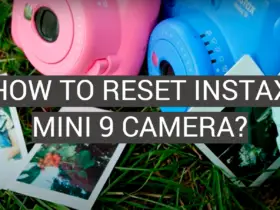
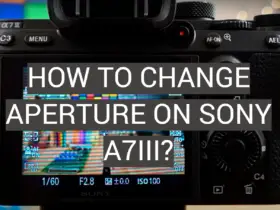
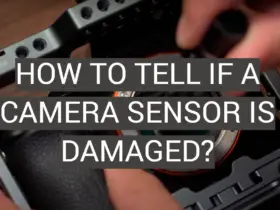


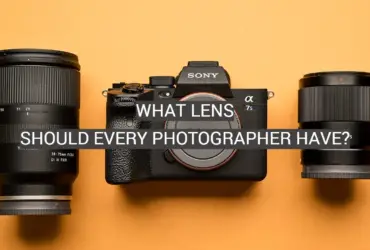
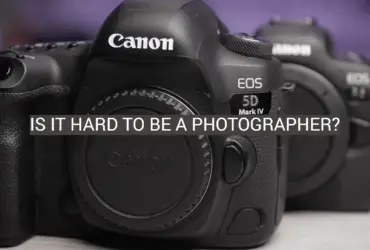
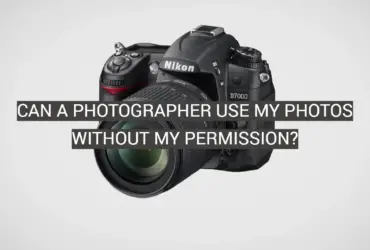



Leave a Reply